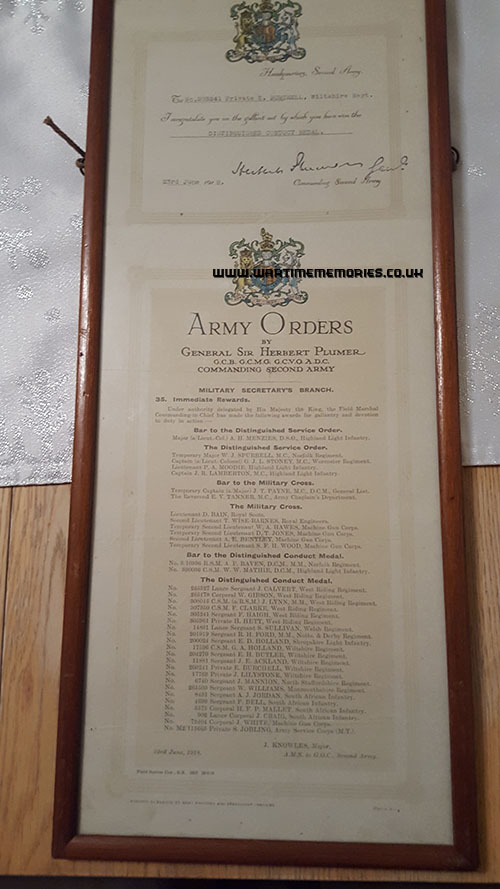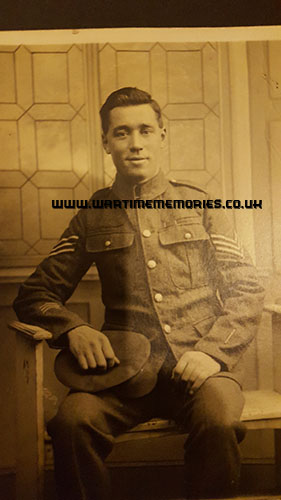Additions will be checked before being published on the website and where possible will be forwarded to the person who submitted the original entries. Your contact details will not be forwarded, but they can send a reply via this messaging system.
please scroll down to send a message
A/Sgt. Ernest Burchell DCM
British Army 2nd Btn. Wiltshire Regiment
from:Calne, Wiltshire
Ernest Burchell, who was my grandfather, joined the Wiltshire Yeomanry on 5th of September 1914 at Marlborough and was posted to Number 1 Section of the 2nd Troop of B Squadron. His superiors were 2nd Lt A. Irwin, Sgt. 58 BRC Palmer and Sgt. 643 Drewitt. The other ranks in his section were: Pte. 1215 Maisey, Pte. 1213 Mace, Pte. 1214 Mace, Pte. 1483 Palmer, Pte. 1877 Hillier, and Pte. 1205 Langfear. The B Squadron commander was Major CS Awdry. This Squadron remained in England for the first part of the war in reserve. They carried out manoeuvres in Ashdown Forest in West Sussex and eventually ended up at Aldershot, where they were part of the South Western Mounted Brigade of the 41st Division.
On 5th of May 1916, they sailed on the SS Rossetti from Southampton to Le Havre, France. Upon arrival in France, they didn't take up combat duties at the front, but they did carry out the important roles of intelligence-gathering, police duties, helping get supplies to the front, digging trenches, and assisting the Engineers with laying communication cables. Some of the Yeomanry (including Ernest) were employed as dispatch riders. During this period, Ernest had two horses that he was riding killed from shrapnel wounds and eventually went to using a motorbike to deliver the dispatches.
On 25th of September 1917, the Yeomanry disbanded and Ernest joined the 6th Wiltshire Regiment. He spent his first day with his new unit in the front line trenches at Spoilbank, south of Ypres. As is well known, the 6th Wiltshires were almost wiped out in the following spring. His section was deployed at Spanbroekmolen, where he and 10 other soldiers were cut off during the Allied retreat. This gallant action earned my granddad the DCM. During phase 2 of the German Spring Offensive of 1918, Ernest and the 6th Wiltshires were involved in heavy fighting during the battles of Bapaume, Bailleul, and Mount Kemmel. Then followed a period of rest and training, after which Ernest was transferred to the 2nd Wiltshires on 13 May 1918 as Pte. 203241. On 23rd of June 1918, he was awarded the DCM, and on 2nd of July 1918 he was promoted to Acting Sergeant with pay.
On 3rd of September 1918, during the 100 days march to victory, Ernest was wounded by a German sniper at Hinges. The family still has the bullet that narrowly missed his heart. He was shipped back to England and spent the remainder of the war recovering from his wound at the East Leeds War Hospital. He was demobilised on 1st of March 1919. He died in 1976, and I am writing a book about his early life.

